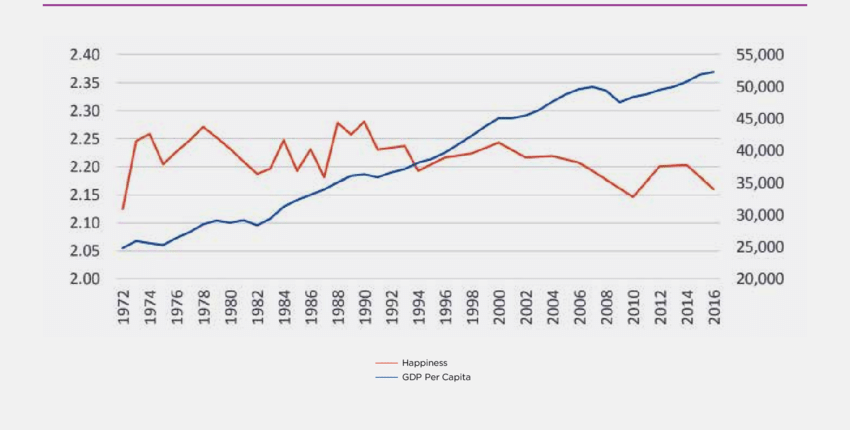What health related progress have we made over time? As I mentioned in a previous post, rates of infectious disease have plummeted dramatically over the last few decades. Life expectancy has increased (at least until very recently). Why? Mostly this is due to vaccinations, antibiotics, food security, basic healthcare and sanitation. It really had very little to do with other advances in medicine though most people probably think otherwise.
What do I mean? Most of the diseases we have today only came about due to modern lifestyles. Most so called “advances” in medicine are in a real sense only a façade. We marvel at the advancements we’ve made against obesity for example – both with bariatric surgery and with wonder drugs like Ozempic. They are largely an illusion of progress based on successfully managing diseases we mostly never had in the first place. And yet, even the progress that we have made, with a few major exceptions noted below, is progress in context only.
Vaccinations. Antibiotics. Sanitation.
Thankfully, due in large part to vaccines, antibiotics, and basic sanitation (like soap, education about handwashing and an advanced sewer system for handling human waste) rates of infectious diseases have plummeted in the last several decades. We’re talking on the order of hundreds of millions of lives saved (which is itself probably an understatement). But recall that we Homo sapiens have been roaming the world for a little over 300K years now.
Neolithic Times And the Rise of Infectious Diseases
As it turns out, the agricultural revolution which took place about 10K years ago, was a boon for fertility and population growth (due to increased agricultural output and thus calories available for consumption) but it was a disaster for the health of the average individual. Farming enabled us to settle down and build towns and cities. But then given the density of the population, and our close confinement with other animals we became vulnerable to virulent infectious diseases.
Paleolithic Times
Our hunter gatherer ancestors were never at a similar risk for virulent infections. They lived outside. They lived in small groups. And they did not live in as close confinement with other animals. When an infection did arise, it rarely jumped to other humans. Moreover, our Neolithic (farmer ancestors) relied on few crops which were always at risk of crop failure. In contrast our paleolithic ancestors consumed a varied diet and thus suffered from nutritional deficiencies at lower rates. This stunted our farming ancestors immune systems in comparison to our hunter-gatherer ancestors further making them uniquely vulnerable to infectious pathogens.
But our hunter gatherer ancestors were not exactly living an ideal existence either. They faced the real threat of food insecurity, dangerous animals, exposure to the elements, and lacked access to some very basic healthcare that could mean the difference between a minor wound and a major untreated wound infection leading to death.
Today: Graduating from Infectious Disease to Chronic Disease
What is so frustrating is that we could have had it all. We came tantalizingly close. We could have solved food insecurity as we have done, enjoyed a real sense of security (from wild animals or from the elements), largely cured infectious diseases and enjoyed access to basic if not advanced healthcare. But we traded it all in for over-reliance on material goods and possessions seeking to fulfill our desire for happiness. Based on the science of happiness, we know these to be unfruitful endeavors. Practically all our possessions are susceptible to hedonic adaptation. At any rate the graph (from the 2018 World Happiness Report) below clearly illustrates that all or spending, far from increasing our happiness have led to chronic diseases which is a part of the reason for the decline in happiness.

But realistically, could we have or should we even try to return to living as hunter gatherers? No. First of all, given the size of the population today, that would be a disaster. We produce enough food for the world more than twice over but that is not the same as to say that the Earth naturally produces enough food to sustain a population of billions of humans.
A Way Forward
Moreover, that ignores the problems our paleolithic ancestors experienced detailed above. But what is realistic is to propose that we can live with much less than we have today without sacrificing happiness. In fact, while increasing happiness. We can keep our arsenal of advancements including antibiotics, sanitation, vaccines, and advanced healthcare. We can even keep a range of modern living amenities: houses, appliances, cars and other motorized vehicles (while limiting small roads around neighborhoods), and more. Nor do we even need to force anyone to curb consumption against their will.
It’s in our self interest to consume less, invest, and free ourselves from an unhealthy dependence upon on employers. That will translate to a range of benefits for our health and beyond.

